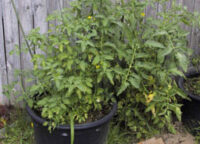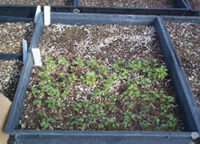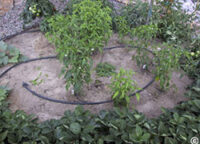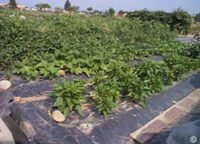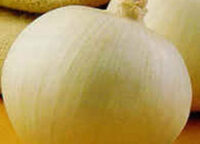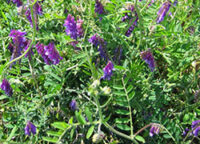- 11, 15, 2017
- Comments Off on Miscellaneous Videos
- By cwis672
Miscellaneous Videos
Click here to see the complete Planttalk Colorado™ playlist. Bee Good to the Bees Beginner’s Guide to Plants Bird Feeding Tips for Colorado Care for Houseplants Colorado Gardening for Beginners Container Gardening Extension Office Basics Fairy Gardens Full Vs. Partial Sun Perennial Plants How to Compost How to Make a Terrarium How to Speak Landscaping Indoor Foliage […]
Take a Tour- 02, 13, 2017
- Comments Off on 1818 – Transplanting into the Garden
- By cwis672
1818 – Transplanting into the Garden
It’s necessary to plant bedding plants as soon as the danger of frost is past or when the soil warms sufficiently. In Colorado, planting is usually safe from about mid- to late May, depending on the types of plants and the area of the state. Consult with employees of local nursery or garden centers for […]
Take a Tour- 02, 13, 2017
- Comments Off on 1814 – Seeding Vegetables
- By cwis672
1814 – Seeding Vegetables
Success at starting vegetables from seed outdoors begins with proper soil preparation. After organic material is mixed into the soil, level the surface and remove large clods for a fine bed. There should be no cracks in the surface of the soil where small vegetable seeds can be buried. A rule of thumb is that […]
Take a Tour- 02, 13, 2017
- Comments Off on 1824 – Watering Vegetables
- By cwis672
1824 – Watering Vegetables
During summer, irrigation is the key factor if you want to grow quality vegetables. A few examples illustrate this point. What vegetable requires more watering than others? Beans require more frequent irrigation than most other vegetables for optimal production and in the blossom- and fruit-growth stages use the most water of any vegetable. Depending on […]
Take a Tour- 02, 10, 2017
- Comments Off on 1809 – Growing Warm Season Vegetables
- By cwis672
1809 – Growing Warm Season Vegetables
What is a warm season vegetable? Beans, corn, cucumbers, melons, okra, eggplant, peppers, tomatoes, pumpkin and squash are warm-season vegetables. Many of these crops grow under cool conditions, but won’t produce fruit when night temperatures are in the 50 degree Fahrenheit range. They need warm temperatures to grow and mature. Once the fruit begins to […]
Take a Tour- 02, 10, 2017
- Comments Off on 1808 – Growing Onions from Seed
- By cwis672
1808 – Growing Onions from Seed
What are the benefits of growing from seeds? Growing onions from seed is economical, and seed-started onions don’t send up flower stems as often as transplanted bedding onions do. An onion’s flowering process ruins the quality of a bulb onion. How do onions grow in Colorado? In northern Colorado, onions grown for winter storage will […]
Take a Tour- 02, 10, 2017
- Comments Off on 1848 – Cover Crop Time
- By cwis672
1848 – Cover Crop Time
Mid-October is a good time to plant winter cover crops for improving soils where vegetables are grown. A long term plan for building and maintaining desirable levels of both organic matter and nitrogen is desirable. Non-legume cover crops help with organic matter and legumes can add both organic matter and nitrogen. What are good cover […]
Take a Tour- 02, 08, 2017
- Comments Off on 1712 – Preparing the Planting Site
- By cwis672
1712 – Preparing the Planting Site
Improper site preparation is a common reason trees and shrubs don’t grow after planting. It is a particularly big problem in areas where the soil is a heavy clay type, typical of the Rocky Mountain region. Such soils have poor drainage and lack a sufficient amount of oxygen to allow vigorous root growth. How can […]
Take a Tour- 02, 07, 2017
- Comments Off on 1720 – When to Fertilize
- By cwis672
1720 – When to Fertilize
When leaves, needles and twigs decompose on the ground, they provide nutrients naturally to plants. Often this is adequate fertilizer, especially for native trees and shrubs. What do different fertilizer ingredients do for the soil? Store-bought fertilizers contain nitrogen (N) and other ingredients. When a plant gets extra nitrogen, it will grow more rapidly, which […]
Take a Tour- 02, 03, 2017
- Comments Off on 1625 – Using Manure in Vegetable Gardens
- By cwis672
1625 – Using Manure in Vegetable Gardens
Adding animal manures can be an excellent way to improve garden soils. Manures can provide many of the micronutrients required for robust plant growth. In addition, adding manure can have significant beneficial effects on the water- and nutrient-holding capacity of the soil. The breakdown of manure in the soil results in a variety of organic […]
Take a Tour
